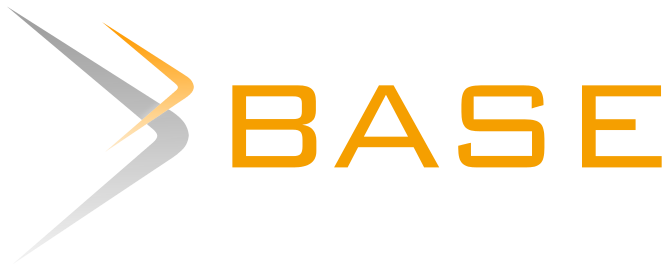How do self-efficacy and career development affect employees' work at PT Telkom Indonesia Palangka Raya?
Keywords:
career development, employee performance, self-efficacyAbstract
This study aims to examine the impact of self-efficacy and career development on the performance of employees at PT. Telkom Indonesia Palangka Raya Branch. The sample will be determined using the saturation sampling technique, including all 70 PT employees. Telkom Indonesia Palangka Raya Branch as respondents. The research methodology employs a causal associative research design, utilizing a quantitative method—techniques for collecting data through questionnaires. The data were examined using descriptive and multiple linear analyses utilizing the SPSS program version 22. The findings indicated that both self-efficacy and career development had a concurrent and partial impact on the performance of PT. Telkom Indonesia Palangka Raya Branch
Downloads
References
Abun, D. (2021). Employees’ self-efficacy and work performance of employees as mediated by work environment. Available at SSRN 3958247.
Akpa, V. O., Asikhia, O. U., & Nneji, N. E. (2021). Organizational culture and organizational performance: A review of literature. International Journal of Advances in Engineering and Management, 3(1), 361–372.
Badrianto, Y., & Ekhsan, M. (2020). Effect of work environment and job satisfaction on employee performance in pt. Nesinak industries. Journal of Business, Management, & Accounting, 2(1).
Beatson, N. J., Berg, D. A. G., & Smith, J. K. (2020). The influence of self‐efficacy beliefs and prior learning on performance. Accounting & Finance, 60(2), 1271–1294.
Caniago, A., & Rustanto, A. E. (2022). The Effect of Career Development on Employee Performance (Case Study at CV Anggara Prima). Majalah Ilmiah Bijak, 19(2), 222–229.
Darmawan, D., Mardikaningsih, R., Sinambela, E. A., Arifin, S., Putra, A. R., Hariani, M., Irfan, M., Al Hakim, Y. R., & Issalillah, F. (2020). The quality of human resources, job performance and employee loyalty. International Journal of Psychosocial Rehabilitation, 24(3), 2580–2592.
Irie, K. (2021). Self-efficacy. In The Routledge handbook of the psychology of language learning and teaching (pp. 100–111). Routledge.
Jaiswal, R., Gupta, S., & Tiwari, A. K. (2023). Dissecting the compensation conundrum: a machine learning-based prognostication of key determinants in a complex labor market. Management Decision, 61(8), 2322–2353.
Kumar, A. (2022). Personal, Social, Academic and Career Development in Higher Education: SOARing to Success. Routledge.
Latifah, I. N., Suhendra, A. A., & Mufidah, I. (2024). Factors affecting job satisfaction and employee performance: a case study in an Indonesian sharia property companies. International Journal of Productivity and Performance Management, 73(3), 719–748.
Lippke, S. (2020). Self-efficacy theory. Encyclopedia of Personality and Individual Differences, 4722–4727.
Martini, S., Khan, W. A., & Muttaqiyathun, A. (2023). The influence of training, motivation, and self-efficacy on career planning. Jurnal Genesis Indonesia, 2(02), 54–73.
Nguyen, P. T., Yandi, A., & Mahaputra, M. R. (2020). Factors that influence employee performance: motivation, leadership, environment, culture organization, work achievement, competence and compensation (A study of human resource management literature studies). Dinasti International Journal of Digital Business Management, 1(4), 645–662.
Patton, W., & McMahon, M. (2021). Career development and systems theory: Connecting theory and practice. In Career Development and Systems Theory. Brill.
Rivaldo, Y., & Nabella, S. D. (2023). Employee performance: Education, training, experience and work discipline. Calitatea, 24(193), 182–188.
Schunk, D. H., & DiBenedetto, M. K. (2021). Self-efficacy and human motivation. In Advances in motivation science (Vol. 8, pp. 153–179). Elsevier.
Setyawati, N. W., PG, D. S. W., & Rianto, M. R. (2022). Career development, motivation and promotion on employee performance. East Asian Journal of Multidisciplinary Research, 1(9), 1957–1970.
Sugiarti, E. (2022). The Influence of Training, Work Environment and Career Development on Work Motivation That Has an Impact on Employee Performance at PT. Suryamas Elsindo Primatama In West Jakarta. International Journal of Artificial Intelligence Research, 6(1), 1–11.
Sugiyono. (2017). Metode Penelitian Bisnis (Pendekatan Kuantitatif, Kualitatif, Kombinasi dan R&D). In Metodelogi Penelitian.
Tuan, L. H. A. (2023). The entrepreneurial pathway of Vietnamese super-rich. The sources of their successful business performance. International Journal of Entrepreneurship and Small Business, 1(1), 1–17.
Tusianah, R., Sutarsyah, C., Sukirlan, M., Ridwan, R., Nurmalisa, Y., Isnainy, U. C. A., Maydiantoro, A., ZAINARO, M. R., & Puja Kesuma, T. A. R. (2021). An integrative review of self-efficacy: What factors enhance and impair it? WSEAS Transactions on Business and Economics, 18, 1057–1072.
Vasoya, V. G. (2023). Unleashing Your Potential:: A Journey of Self-Discovery and Personal Growth. Dr. Vasoya’s Healing Homoeopathy.



